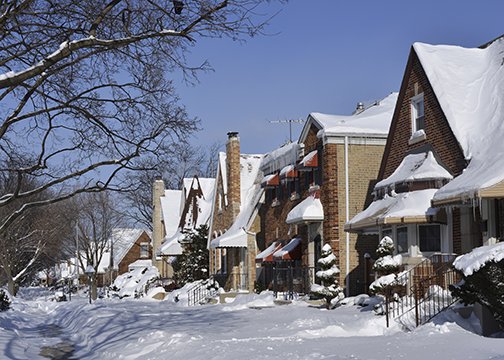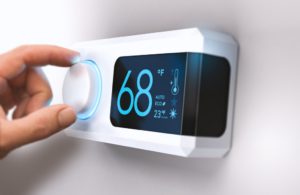
Top homeowners’ tips for saving energy, money during winter
Keeping a home warm during the cold winter can be expensive and energy-consuming. But you can suggest things homeowners can do—even if they’re not handy— to reduce those costs and save energy.
American Home Inspectors Training covered the topic of how to save money and energy during winter, offering these tips:
Insulate, insulate, insulate. Home inspectors are among the professionals who can identify where in a home heat might be escaping and cold may be entering. Once those areas are identified, it’s a matter of insulating and air sealing the home to help insure the heat stays in and the cold stays out. Adding insulation to the hot water heater or hot water lines is another potential energy saver. But, in the case of a gas or oil water heater unit, make sure the insulation doesn’t interfere with byproduct exhaust.
Tap technology to automatically lower the thermostat and turn off lights when possible. Programmable thermostats can reduce heat when homeowners are away and raise it back to comfortable temperatures just in time for their arrivals. It’s a similar concept with lighting controls. Technologies, including motion sensors and time controls, help homeowners use lights only when needed.
For those who haven’t installed programmable thermostats or lighting controls, simple awareness can go a long way. If you’re leaving a room, switch off the light. If you’re leaving for work, turn down the heater. The Department of Energy estimates that each degree lower on the thermostat translates to a 1% saving on the monthly energy bill, according to an article on home energy conservation on the FamilyHandyMan.com. If turning it down makes the house too cold, consider an electric space heater for family gathering places, according to FamilyHandyMan.com.
Homeowners can try several simple energy-saving techniques when leaving on vacation. Before you go, lower the temperature on the water heater. Setting the water heater to its lowest or “vacation” setting can result in considerable savings. Unplugging electronics and appliances is another great way to save energy and money. Even when these devices are turned off, they’re still using electricity if they’re plugged in. Having power strips for some electronics and devices can make the task of unplugging easier. But remember, power strips are typically not made for more than 15 amps.
Doors and windows are notorious for allowing the warm out and the cold in (or vice versa during summer). Installing Energy Star doors and window can address the problem and upgrade a home. But the upgrade can be costly. Another much cheaper option is to make the windows that exist work more to the homeowner’s advantage. How? In windows that have direct sun exposure, keep blinds and curtains open during the day to access the sun’s heat. Close the window treatments at night. Another tip: Use quilted curtains to block drafts, according to FamilyHandyMan.com.
Opt for LED lights, especially for holiday decorating. Light Emitting Diodes, or LEDs, are at least 75% more efficient and last up to 25 times longer than traditional incandescent bulbs, according to AHIT.
AHIT’s Energy Audit Certification course provides all the tools home inspectors need to perform a professional home energy audit.





